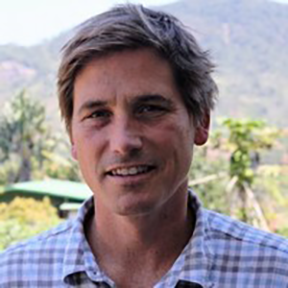Less is Different: Complex Systems and an Action-Oriented Science of Global Health

Dr. Matthew Bonds, trained in both disease ecology and economics, does groundbreaking research at the intersection of ecology, economic development and global health. Matthew's integration of rich data-driven science and community-based research is both rigorous and solutions oriented. As co-founder and scientific director of the non-profit PIVOT Madagascar, focused on the science and implementation of healthcare delivery, Matthew's work embodies the kind of science to action and problem solving that the Bren School aspires to.
—Andy MacDonald, Assistant Professor, Bren School
Watch a recording of this talk here
ABSTRACT
Observable order in the world emerges from complex processes ranging from the molecular level to the global scale and beyond. This complexity presents significant challenges in identifying both the causes of problems and their potential solutions. For instance, what are the true determinants of malaria in areas of poverty, and what interventions are effective? Building on the history of breakthroughs in understanding complex phenomena in the natural and social sciences, this talk presents a model system in Madagascar. The “model” is practical and community-based, while leveraging large quantities of data at multiples scales within the context of significant health system interventions. Such data invite diverse disciplinary approaches to help identify what works, including prospective hypothesis-driven research, and exploratory approaches that lead to new questions that could not have been generated at the outset. Results have informed recent changes to national health policies in Madagascar and may offer broader lessons for sustainability science.
BIO
Matthew Bonds has a PhD in economics and a PhD in (disease) ecology from the University of Georgia. He is an associate professor of global health and social medicine at Harvard Medical School, and co-founder & scientific director of PIVOT. His research focuses on 1) the ecology of poverty and economic development; and 2) the science of implementing global health delivery systems. PIVOT works with the Madagascar government to establish a district level model health system for over 200,000 people. With novel data systems at all levels of care (community, primary and secondary care), this partnership is pioneering a new a science of health system transformation, with some of the most rigorously evaluated population level impacts in the world. His work has been supported by a K01 Award from the NIH Fogarty International Center, a Scholar Award in Complex Systems Science from the James S. McDonnell Foundation, and a Rainer Arnhold Fellowship from the Mulago Foundation.